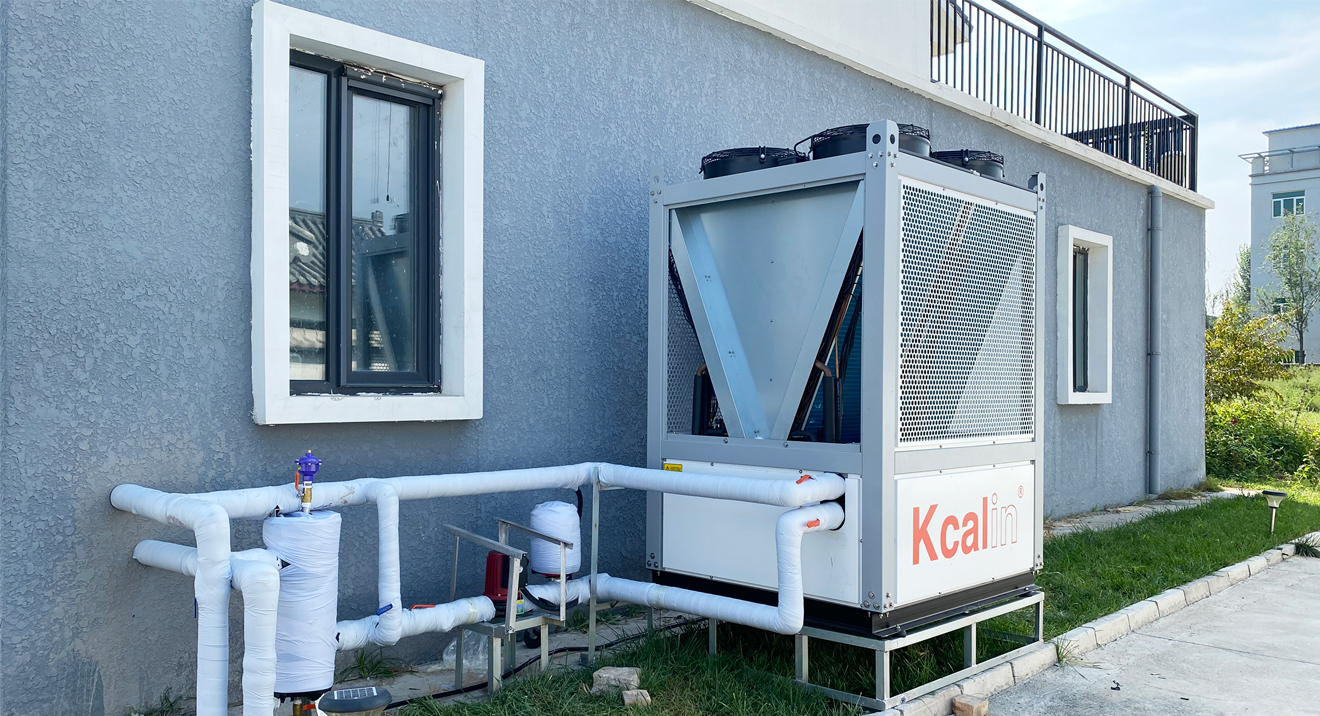With the increasing threat of climate change and energy crisis, people's attention to environmental protection and energy conservation is also increasing. In this context, air source heat pump air conditioning systems have emerged as a solution with great potential.
To understand the advantages of air source heat pump air conditioning, it is necessary to first understand its working principle. This system utilizes the principle of heat pumps to achieve cooling and heating by transferring heat between indoor and outdoor environments.
Refrigeration process: In summer, the air source heat pump air conditioning system absorbs heat from indoor air and discharges it outdoors. This process reduces the indoor temperature and provides a cooling effect. The system accomplishes this task through an evaporator and condenser. The evaporator absorbs indoor heat and evaporates the refrigerant, which is then compressed by the compressor and discharged into the outdoor condenser, while releasing heat. The heat in the condenser is discharged outdoors through a fan, keeping the room cool.
Heating process: In winter, the air source heat pump air conditioning system performs the opposite process, absorbing heat from the outside and transferring it indoors to provide heating effect. Similarly, this is achieved through the evaporator, compressor, and condenser. The evaporator absorbs outdoor heat and evaporates the heating agent. The compressor compresses and releases it indoors, transferring heat to the indoor air.
Advantages of air source heat pump air conditioning

Efficient and energy-saving: Air source heat pump air conditioning systems are known for their efficient energy utilization. They not only provide adjustable temperature control, but also utilize natural heat in the environment during refrigeration and heating processes, reducing dependence on electricity or other energy sources. This efficient and energy-saving feature can reduce energy costs, which is a huge economic advantage for both household and commercial use.
Environmental protection and low emissions: Compared to traditional air conditioning systems, air source heat pump air conditioning has a smaller impact on the environment. They do not require the use of harmful chemicals such as Freons, reducing greenhouse gas emissions. In addition, due to their efficient energy utilization, they can help reduce energy consumption, thereby reducing carbon footprint.
Multifunctionality: Air source heat pump air conditioning can not only provide cooling, but also heating. This versatility makes them an ideal solution for year-round use. Whether it's in hot summer or cold winter, it can provide the necessary temperature control indoors.
Comfort: This system also provides a more uniform temperature distribution without causing significant temperature differences. They can maintain the stability of indoor temperature, allowing people to enjoy a comfortable indoor environment throughout the year.
Operability and remote control: Many air source heat pump air conditioning systems are equipped with intelligent control and remote monitoring functions, allowing users to easily control and monitor the system through mobile applications or the internet, improving convenience and operability.
The air source heat pump air conditioning system has been widely applied in multiple fields:
Residential: In the residential field, air source heat pump air conditioning has become a choice for more and more families. They are suitable for single family homes, apartments, and multi family homes, providing a comfortable indoor environment and energy conservation.
Commercial buildings: Air source heat pump air conditioning is also widely used in office buildings, shops, and restaurants in commercial buildings. These systems not only provide comfort for employees and customers, but also reduce operational costs.
Industry and manufacturing: In the field of industry and manufacturing, air source heat pump air conditioning can be used to maintain the constant temperature and humidity of the production environment, improving production efficiency.
Agriculture: The use of air source heat pump air conditioning in the agricultural field to maintain suitable conditions for greenhouses, livestock farms, and farmland can help improve the yield and quality of agricultural products.
The air source heat pump air conditioning system is an environmentally friendly, efficient, and multifunctional cooling and heating solution that has achieved success in various application fields. They not only improve indoor comfort, but also help reduce energy costs and environmental impacts. With the continuous development of technology, air source heat pump air conditioning will continue to play an important role in creating a more livable indoor environment for us, while contributing to environmental protection and sustainable development. Therefore, choosing an air source heat pump air conditioning system is not only beneficial for individuals, but also for the entire planet. Let's move towards a cleaner and greener future together!







Comment